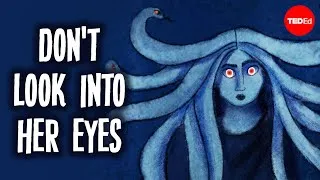请双击下面的英文字幕来播放视频。
翻译人员: Yan Li Xiao
校对人员: Yanyan Hong
00:07
As archaeologists pored over ancient tombs
in Turfan in western China,
0
7670
4630
当考古学家考察
位于中国西部吐鲁番的古墓时,
00:12
they discovered some surprisingly
well-preserved and familiar relics.
1
12508
3796
他们惊奇地发现了
许多保存完好、熟悉的文物。
00:17
Though hardened from over 1,000 years,
2
17013
2377
虽然经过 1000 多年的淬炼,
00:19
there sat little crescent-shaped
dumplings.
3
19390
2503
但那里依然有着
一些小小的新月形水饺。
00:22
Exactly who invented dumplings
remains a mystery.
4
22560
2628
到底是谁发明了饺子
仍然是一个谜。
00:25
But some scholars suspect
they were first spread
5
25229
2294
但也有学者猜测,
它们最早是由生活在中国西部
00:27
around parts the ancient world
by nomadic Turkic peoples
6
27523
3420
以及中亚的游牧突厥民族在古时候
00:30
living in western China and Central Asia.
7
30943
2378
将其传播至世界各地的。
00:33
This is thought to be the case
because “manti,”
8
33654
2420
之所以这样认为,是因为
00:36
meaning “dumpling” or “steamed bun”
in many Turkic languages,
9
36074
3753
在突厥系语言中 “manti” 的意思是
“饺子” 或者 “包子”,
00:39
appears to be the root word for dumpling
in several other languages.
10
39994
3712
然后它似乎在其他几种语言中
也作为饺子的词根。
00:44
Ancient Turkic people probably stuffed
their dumplings with meat.
11
44082
3461
古代突厥人可能是用肉馅包饺子,
00:47
But it’s unclear when this practice
began,
12
47752
2627
但目前尚不清楚这种做法
是从什么时候开始的,
00:50
or whether they learned the art
of dumpling-making from others.
13
50463
3045
或者他们是否从别人那
学会了包饺子这门艺术。
00:53
However this happened, dumplings certainly
gathered steam in ancient China.
14
53758
4588
然而无论如何,饺子肯定是在
中国古代开始获得了人气。
00:58
That’s where they first appear
in the written record:
15
58554
2586
饺子第一次由文字记载了下来:
01:01
more than 1,700 years ago,
16
61140
2169
1700 多年前,
01:03
in a mouthwatering rhapsody
by scholar Shu Xi.
17
63309
3837
在文人束皙的一场
令人垂涎的狂想曲中,
01:07
In his poem, Shu alludes to certain
cooking methods coming from alien lands.
18
67313
5088
束皙在他的诗中提及了某些
来自异域的烹饪方法,
01:12
He describes a steamed wheat
product as “mantou.”
19
72735
3587
他描绘了一种用小麦蒸成的食物
名为 “馒头”。
01:16
And he reverentially chronicles
the preparation of kneaded dough balls
20
76489
4129
他虔诚地记录了
01:20
called “lao wan.”
21
80618
1543
揉面团的制作过程,称作“烙丸”。
01:22
They’re packed with pork,
mutton and aromatics,
22
82662
2711
丸子里装满了猪肉、羊肉和香料,
01:25
dipped in black meat sauce,
then quickly gobbled up,
23
85373
2836
而后蘸一点黑肉酱,一口下肚,
01:28
leaving people downwind to drool
and fantasy-feast.
24
88209
3378
让人口水直流,好似梦之盛宴。
01:32
Dumplings continued to take
off and diversify in China
25
92213
3170
在接下来的一千年里,
饺子在中国不断发展,
01:35
over the next thousand years.
26
95383
1710
01:37
Instead of the traditional meat filling,
27
97135
2002
一些地区不再使用传统的肉馅,
而是开始包素馅饺子。
01:39
some communities opted
for vegetarian dumplings.
28
99137
2752
01:42
People developed new cooking methods.
29
102390
2002
由于小麦在中国北方以外地区更难种植,
01:44
And because wheat was harder to cultivate
outside of northern China,
30
104392
3462
人们还发明了新的烹饪方法。
01:48
those in other regions began making
dumplings
31
108062
2169
其他地区的人开始用米饭、
01:50
using rice, tapioca, and sweet potato.
32
110231
2502
木薯粉和红薯来制作水饺。
01:52
The relationship between Chinese dumplings
and those in other areas
33
112984
3795
中国不同地区的饺子与历史的联系
01:56
is tricky to trace,
34
116779
1377
很难准确追溯,
01:58
but food historians have made their best
guesses based on available clues.
35
118239
3837
但是食品历史学家
根据现有的线索做了最可能的推测。
02:02
Turkic tribes spread
and eventually established
36
122702
2794
突厥部落分布
最终在公元 1300 年左右
02:05
the Ottoman Empire around 1300 CE,
37
125496
3087
建立了奥斯曼帝国,
02:08
bringing wrapped morsels west with them.
38
128875
2377
并将包裹好的食物带到了西方。
02:12
In what’s now Turkey, most people
wouldn’t have stuffed dumplings with pork
39
132211
4088
在现在的土耳其,大多数人
由于伊斯兰教的饮食限制,
02:16
due to Islamic restrictions.
40
136299
1960
不会用猪肉包饺子。
02:18
Instead, manti would come to be filled
with ingredients like lamb,
41
138342
4046
而是由淋上大蒜、酸奶
02:22
drizzled with garlic, yogurt,
and melted butter,
42
142388
2419
和热黄油等配料的羊肉来做饺子馅,
02:24
then topped with herbs and spices.
43
144807
1877
然后再撒上香草和香料。
02:27
Some scholars believe that the Mongol
Empire also helped disseminate dumplings,
44
147393
4213
有学者认为蒙古帝国
也帮助传播了饺子,
02:31
perhaps introducing them
to parts of Eastern Europe.
45
151689
2669
也许是他们将饺子带到东欧部分地区。
02:34
These dumplings could have
come by way of China
46
154650
2294
这些饺子可能来自中国,
02:36
or directly from some of the Turkic
peoples the Mongols hired
47
156944
3212
或直接来自蒙古人雇用来管理
02:40
to run their empire.
48
160156
1418
其帝国的一些突厥人。
02:41
One theory is that this gave rise
to dumplings like Russian pelmeni,
49
161824
3462
有人认为这就是为何出现了
像是俄罗斯饺子,
02:45
and the larger pierogi and vareniki,
eaten in Poland and Ukraine,
50
165286
3837
还有更大的波兰饺子和乌克兰饺子,
02:49
stuffed with things like potato, cabbage,
cheese, and cherries.
51
169123
3045
主要食材是土豆、
卷心菜、奶酪和樱桃之类的东西。
02:52
The Mongol Empire also controlled Korea
52
172418
2419
蒙古帝国也控制了朝鲜,
02:55
and might have likewise introduced
dumplings there,
53
175129
2586
并可能也在那里引入了饺子,
02:57
where “mandu” may be eaten
with regional ingredients like kimchi.
54
177757
3795
在那里 “mandu” 可以跟泡菜等地方食材同食。
03:02
Later, after Chinese dumpling varieties
were introduced to more countries,
55
182220
3878
后来,当品种多样的中国饺子
被介绍到更多国家之后,
03:06
English speakers began calling
them dumplings.
56
186182
2794
说英语的人开始叫称之为
“dumplings”(饺子)。
03:09
The term means “little lumps”
57
189268
1877
这个词的意思是 “小肉块”,
03:11
and is thought to have been first
used in 16th century England
58
191395
3504
并且认为最早始于 16 世纪的英国,
03:14
to describe dough balls dropped in liquid.
59
194899
2544
是被用来描述掉在液体中的面团球。
03:17
Like knödel and matzo balls,
they would’ve had no filling.
60
197818
3170
像德式土豆饺 (Knödel) 和脆饼面丸,
它们没有馅。
03:21
So, the word was actually
confusingly imprecise,
61
201155
2711
所以,这个词实际上是
令人困惑的不准确,
03:23
but it stuck, nonetheless.
62
203866
1752
但它仍然被记住了。
03:26
When Japan occupied China
during the Second World War,
63
206661
3295
当日本在二战期间占领中国时,
03:29
Chinese “jiaozi” were brought to Japan,
64
209956
2961
中国的 “饺子” 被带到了日本,
03:32
where they in turn became known as “gyoza”
and were more typically pan-fried.
65
212917
4921
在那里它们又被称为 “gyoza”
并且通常是被煎炸的。
03:38
So what about the fact that every region
in Italy has its own variety
66
218589
3837
那么在意大利的每个地区
03:42
of dumpling-like stuffed pasta?
67
222426
2044
为什么都有自己各式各样的意大利饺呢?
03:44
Some historians think that Arab conquerors
brought dumplings
68
224929
3587
一些历史学家认为阿拉伯征服者
在 9 世纪和 11 世纪之间
03:48
when they reigned over Sicily
between the 9th and 11th centuries.
69
228516
3920
他们统治西西里的时候带来了饺子。
03:52
But the jury's still out.
70
232770
1627
但并非所有人都认同此观点,
03:55
It’s unlikely that all dumpling-esque
dishes came from the same root tradition.
71
235856
4380
不太可能所有饺子式的
菜肴都是来自同一个传统根源。
04:00
In many cases, it may simply
be that culinary visionaries
72
240236
3628
在许多情况下,它可能只是
是来自不同文化的
04:03
from different cultures shared
a similar revelation:
73
243864
3003
烹饪家共享了相似的灵感:
04:07
that cooking fillings encased in dough
would be delightful.
74
247326
3545
把烹饪馅料包裹在面团中会很好吃。
04:11
Either way, we can appreciate
these plump pockets of perfection—
75
251372
4171
无论如何,我们都感谢
这些丰满的完美口袋——
04:15
and the tangled, mysterious historical web
76
255543
2669
以及让饺子多样和神圣的
04:18
that’s made dumplings
so diverse and divine.
77
258212
3003
错综复杂的、神秘的历史网。
04:22
This video was made possible with support
from Marriott Hotels.
78
262960
3253
该视频由万豪酒店赞助制作。
全球拥有超过 590 家酒店和度假村,
04:26
With over 590 hotels and resorts
across the globe,
79
266252
3211
万豪酒店赞颂
驱使我们旅行的好奇心。
04:29
Marriott Hotels celebrates the curiosity
that propels us to travel.
80
269463
3532
万豪是TED-Ed 的合作伙伴,
点击网址查看更多,
04:33
Check out some of the exciting ways
TED-Ed and Marriott are working together
81
273000
3441
在万豪酒店预订你的下一次旅程吧。
04:36
and book your next journey
at Marriott Hotels.
82
276441
2419
New videos
Original video on YouTube.com
关于本网站
这个网站将向你介绍对学习英语有用的YouTube视频。你将看到来自世界各地的一流教师教授的英语课程。双击每个视频页面上显示的英文字幕,即可从那里播放视频。字幕会随着视频的播放而同步滚动。如果你有任何意见或要求,请使用此联系表与我们联系。







